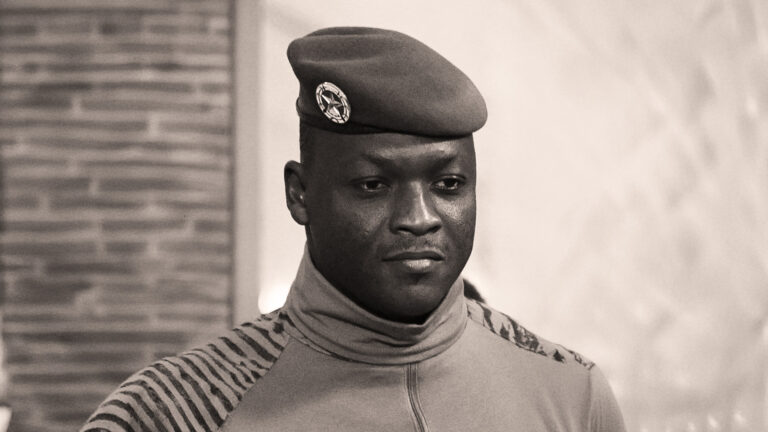Over the last century, many churches in Zimbabwe and across Africa have increasingly embraced fasting, especially at the beginning of the year. Some congregations fast for periods ranging from 10 to 40 days. Supporters typically cite Luke 4 to justify this practice. Regrettably, there have been reports of some individuals suffering severe consequences from excessive fasting, even death. While opinions on fasting vary, I believe that both extremes—the complete cessation and excessive fasting—can be problematic.
Jesus upholds the importance of prayer and fasting but warns against hypocrisy.
This article sets out to offer a biblical perspective on both fasting and prayer, particularly in light of the rising popularity of midnight prayers, which are often considered more powerful than other forms. To justify this view of prayer, supporters cite passages such as Acts 16:24-25; Psalm 121:4; and Psalm 119:62. But in his sermon on the mount (Matthew 6:1-18), Jesus offers one of the Bible’s most sustained treatments of both prayer and fasting. Throughout, he upholds their importance and warns against hypocrisy. Without calling on us to abandon those practices, he cautions believers against a pitfall common to them: hypocrisy, which I think is profoundly relevant for the Zimbabwean church today.
Jesus on Hypocrisy
The term ‘hypocrite’ originates from a long history of acting, specifically the practice of playacting, where individuals portray roles that may not reflect their true selves. This English word is derived from a Greek meaning actor or stage performer. A hypocrite, therefore, represents a duality of character. And Jesus confronts this in his sermon on at least four occasions:
- “When you give to the needy, do not sound the trumpets like the hypocrites” (Matthew 6:2)
- “When you pray, do not be like the hypocrites” (Matthew 6:5)
- “And when you pray, do not keep on babbling like pagans” (Matthew 6:7)
- “When you fast, do not look somber like the hypocrites” (Matthew 6:16).
In each of those, Jesus warns us against hypocritical religious practices, particularly around giving, praying and fasting. The issue lies in the motivation behind them. For Jesus says they’re performed to be seen by others. When fervour and zeal, generosity and passionate outpourings aren’t consistent with who we are and how we typically live, it’s hypocrisy (Matthew 23:27-28).
Our actions should be driven by the right attitude, aiming solely at God.
Importantly, let me clarify: Jesus doesn’t prohibit giving, praying, or fasting. Furthermore, he doesn’t specify how much to give, how long or when to pray. We’re free to decide on that for ourselves and shouldn’t be made to feel guilty for not: praying through the night, giving more than we can reasonably afford; or fasting within an inch of starvation.
The key message here is this: hypocrisy has no place among Jesus’ disciples. Our actions should be driven by the right attitude, aiming solely at God and his glory. This is why Jesus speaks about doing them in secret, which God sees and rewards (Matthew 6:4).
1. Fasting Is Not a Tool
As mentioned earlier, I’ve observed a trend in Zimbabwean churches where members are encouraged to fast for weeks at a time, usually at the beginning of the new year—some have even claimed a full year of fasting. The practice is often linked with seeking blessings from God or protection from enemies. However, such an approach to fasting is inconsistent with biblical teachings and more resembles elements of traditional African religion.
This approach to fasting resembles elements of traditional African religion.
For example, many African traditions focus on appeasing ancestral spirits through rituals to gain blessings and protection. Blending this belief with the Christian faith, many Africans think they must perform actions, such as fasting, to earn God’s favour. But this reduces fasting to a tool, a means of manipulating God.
Biblical fasting has its roots in the Old Testament. The Israelites fasted in anticipation of the Messiah (Zechariah 8:18-19; Luke 2:36-38). Thus, Jesus indicated that fasting was inappropriate while he was present (Matthew 9:15). Though others take a different position, I believe we should fast, as we too anticipate Christ at his second coming. But the fasting practices I’ve observed in many Zimbabwean churches have little to nothing to do with Christ. They far more resemble the practices Jesus warned against (Matthew 6:6), hypocritical and self-serving. They’re largely unconcerned with our relationship with God (Matthew 6:17), apart from their interest in bending his arm for divine blessings.
Fasting should come from the genuine submission to God (Joel 2:12-13). It must reckon with our sinfulness (Jonah 3:7-9). By it, we can anticipate Christ’s return (Luke 2:36-38). Fasting should be a responsive act that acknowledges our human condition—fallen, weak, and dependent on God’s grace. While it is an expression of faith, it should never be the measure of our faith, for then we’re in danger of practising our righteousness before others in order to be seen (Matthew 6:1). Fasting isn’t about self-denial for its own sake; it’s a recognition that life is more than food. It’s one of the ways we can confess that “man shall not live by bread alone, but by every word that proceeds from the mouth of God” (Matthew 4:4).
2. Prayer As a Response
What about prayer? To understand how to pray biblically, we need to also avoid the hypocritical approach. In Matthew 6:9, Jesus encourages us to engage in thoughtful prayer. This doesn’t mean we must shut the door every time; or that we can only pray the Lord’s Prayer verbatim. Rather, it’s a reminder that in prayer we seek God’s face and pleasure. Prayer mustn’t be about our human audience, for when it is, hypocrisy usually creeps in.
Prayer isn’t a means of getting what we want from God; it’s our response to his abundant grace towards us.
Within Matthew 6 and Jesus’ teaching about these three religious practices—giving, praying and fasting—prayer takes centre-stage. By this, I’m not merely pointing out that it’s in the middle of the other two, but it receives more attention than them as well. Consider Matthew 6:7. “When you pray, do not heap up empty phrases as the Gentiles do, for they think they will be heard for their many words. Do not be like them.” Here, Jesus contrasts hypocritical prayers with Gentiles—those who don’t know God. His issue isn’t with praying regularly, but rather with praying repetitively, using empty words and nice-sounding phrases. Jesus is again urging us to have clear, intentional communication with our Father in heaven.
Unfortunately, many of the all-night prayers I’ve attended encourage anything but thoughtful or sincere prayers. Instead, they’re marked by mindlessly repeating phrases; prioritising length over substance and sacrifice over mercy. Jesus’ teaching in Matthew 6 highlights, however, that one of the most important aspects of prayer is our attitude, or heart. Insisting on duration, effort, and mantra-like utterances misses the point.
Like fasting, we must beware of praying that seeks to impress others; simultaneously, though we bring our requests to God in prayer, we don’t make demands, much less do we decree. So we must be alert to syncretism in our approaches to prayer. Growing up in the village, there was always an emphasis on performing lengthy rituals to invoke spirits. But Jesus teaches that our relationship with God is very different. Prayer is not a means of getting what we want from him. It’s our response to his abundant grace towards us.
Reconsider Why You’re Fasting and Praying
Have you ever felt pressured to make your prayers longer to impress others? Do you think that if you don’t fast or fail to attend all-night prayers, God won’t care for your needs? Perhaps you thought fasting or staying awake at these events would guarantee God’s blessings. Such theology isn’t only wrong. It’s perilous because it can lead to spiritual hypocrisy or abuse, or both. Neither prayer nor fasting is a way to earn God’s favour, as if we could manipulate him.













